Abstract: In this intimate glimpse of Hugh Nibley’s childhood, written by his daughter Zina, we read of what it was like for Hugh to grow up as a gifted child with Victorian parents and, in turn, what it was like for Zina and her siblings to grow up as a child in the home of Hugh and Phyllis. These poignant, never-before-told stories reveal why, in Zina’s words, “Hugh’s uniqueness lay as much in his inabilities as in his abilities, as much in what he refused to learn as what he refused to allow to remain unexamined.” And though it was obvious that his mind was extraordinarily sharp, we learn why “it was Hugh Nibley’s heart that made the difference. And it was a very good heart.”
[Editor’s Note: Part of our book chapter reprint series, this article is reprinted here as a service to the LDS community. Original pagination and page numbers have necessarily changed, otherwise the reprint has the same content as the original.
See Zina Nibley Petersen, “Nibley’s Early Education,” in Hugh Nibley Observed, ed. Jeffrey M. Bradshaw, Shirley S. Ricks, and Stephen T. Whitlock (Orem, UT: The Interpreter Foundation; Salt Lake City: Eborn Books, 2021), 57–76. Further information at https://interpreterfoundation.org/books/hugh-nibley-observed/.]
In one of Hugh Nibley’s earliest memories, he was sitting under the dining room table while his parents discussed in hushed and horrified tones a terrible disaster they had just heard about. As he played on the Oriental rug and traced a chubby finger over the symbols that he would, in later years, learn how to read—they were the rug maker’s name in Arabic—above him, his father’s voice was saying something about how [Page 316]terrible it was. It was supposed to be invincible. It was supposed to be unsinkable. So many lives. He was telling his wife about the tragedy of the Titanic. Even in his nineties, Hugh Nibley always fully remembered feeling very saddened by his parents’ mood that day. He had just turned two years old.
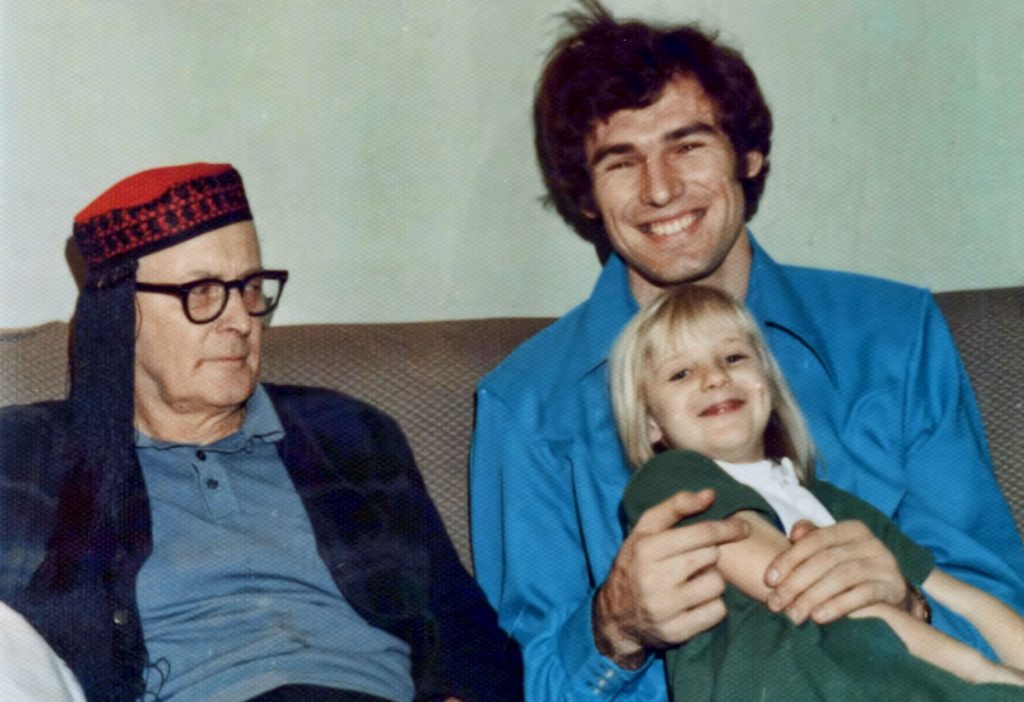
Figure 1. A Nibley family home evening with Krešimir Ćosić, the famous basketball player and coach who was playing for BYU at the time and to whom Hugh taught the gospel. Kreso is holding Zina, February 1972.1
My topic for tonight is the early education of Hugh Nibley. Not having been present for it, I find this daunting, but I will address it anyway. There are reasons why this topic is so intriguing. The reputation of Nibley the scholar or Nibley the man or Nibley the academic and religious savant, coupled with an awareness of how different he was, leads to a faintly voyeuristic fascination for all of us. How did he get like that? How did this begin to develop into whatever it was that we remember of Hugh Nibley? Can I answer that? Can anyone answer that?
As I grew up being his daughter, I was aware of the interest people had in him. I was aware that he was a teacher and a book writer and a defender of the gospel, but I did not share the disconnect—the sense that he was so different—until I learned it from the inside out. Here before me is an audience that, to at least some of you, sees Hugh Nibley more or less as an anomaly, as something different. But I’ve had to learn, and it has been admittedly and somewhat shamefully late, why and how he was [Page 317]an anomaly. Looking back, I think I used to assume that it was a content issue. His mind had a lot of stuff in it. The difference was one of degree but not type. I assumed that the main difference between all children, of which I was one, and all adults, of which he was one, was quantifiable.
I’m the cute one. I knew I was in the same boat with his admirers but further behind. We all knew that he thought more than we did. I knew that he had more languages in which to think. He had read more books, both to glean ideas from and to converse and engage with, than I would ever have. But, like the proverbial fish, I had no idea the water I swam in was wet. And so I absorbed his way of thinking, even as I easily dodged those languages and books and efforts that facilitated much of the content of his thoughts. I will get to that, to the content part. In fact, I promise that this talk will be larded with it. I do have a cache of “wowza” type stories about his experiences from his formal education, stories that are even actually true and that will impress upon all of us, myself not least, how rigorous was his early training, how lucky and blessed were his family situations and resources to allow him to pursue his education, to allow him to become what he became.
But then I want to point out briefly how little that mattered. Other people have had the content, though not, of course, exactly similar to his, and yet they have not been Hugh Nibley. So the stories, many of the stories that I’ll tell tonight, are documented in the biography my husband wrote about my father.2 Boyd, being the meticulous scholar that he is, only published those anecdotes related by my father or siblings or his siblings that Boyd could then verify by means of some additional source. In this somewhat less formal context, and by being a blood relation, I am bound by fewer such strictures of scholarly rigor. And so what I say might be more along the lines of embellishment or informal reminiscence. That, however, does not mean that the anecdotes are false, just that it comes through my own experience, filtered through my recollections of conversations with Dad or with family members or friends.
There are the facts of the stories, and then there are the implications of the subject of them. Obviously, I will not be able to separate out neatly all those parts of his personality that were nature and which ones were nurture. I can say with some confidence that there was a basic conflict between those two in at least one area. He was born with an acute, deeply emotional sensitivity, and he was born in 1910 to very Victorian parents. Emotional displays were nothing if not a distasteful and downright inconsiderate reminder of human irrationality. I think if someone in [Page 318]that household had a feeling, they were firmly invited to take it outside or at least to turn a hostile wit on it to defuse its potential for disruption. This worked oh so well, especially for one both as naturally witty and prone to emotional weakness as he was. Sentimental drivel was Dad’s war cry if something moved him unexpectedly.
Many people have enjoyed Hugh’s acerbic wit. Several have suffered at his wielding of it. I would suggest, gently I hope, that Hugh’s world-class wit, irony, and sardonicism were a large part of his seawall against the flood of feeling that could, if he allowed it, overtake him. So for the most part, he did not allow it. This was a conscious decision and a conscious effort, not purely a reactionary defense. He freely owned it, if not recognizing the extent to which he came to rely on it. In a letter to his grandmother, as he was training for World War II, he wrote that while most of the other GIs were complaining miserably, he was rather enjoying himself. “The secret is to remain as detached from everything as a disembodied spirit,” he wrote, viewing even one’s own activities as something rather distant and amusing.
Seen in this light, the pattern of our feverish and ill-considered career presents some striking features. What strikes one most forcibly from the first is the fact that the people of our world are guilty of the tragic mistake of acting and thinking like animals, like mindless insects, or like some species of shellfish, to live and breed for a date and then disintegrate and leave nothing behind but a pestilential odor. Hugh could not tolerate this waste and tragedy of such an unconscious life. He observed others living that way, especially when he was in the army. He recorded the phenomenon with fierce judgment, and eventually he tried his best to wake people up out of it. How then did he become conscious? How did he get there—the question I posed at the beginning? And my answer is that I am not sure that he wasn’t always there.
I’m not sure he was ever asleep to some of the things we normal folks are unaware of. And the flip side is true as well. He was often profoundly oblivious to things, whether he walked or drove the car somewhere, for instance, upon which other people have a firm grasp. I think his facility with academics and self-teaching helped him to develop the defensive armor against the slings and arrows of life, the trivialities with which the rest of us poor slobs concern ourselves. But he did have to learn how to use those facilities in his own emotional defense. He wasn’t always prepared for what the world threw at him.
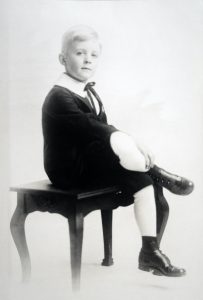
Figure 2. Hugh, perhaps about
five years old.3
At the end of the first term, the class was reading the clown book. He says, “It was the hardest of them all; no one could do it. So, I raised my hand and rattled it off.”
“Why Huey!” exclaimed the teacher, “You didn’t tell me you could read.”
“Well, you never asked me,” he answered. So yes, he was a gifted kindergartner. That story is not remarkable in that he could read young—many children read young—but that he was innocent of its uses. The content of knowing how to read was in place, but not the software function of in which situations he should read. But if there was a gap in knowing how to use what he had, there was no gap at all between the values of his spirit and his behavior.
On his fifth birthday, his parents took him down for a special treat to visit his uncle Lou, who lived on a houseboat on the Willamette River. For his birthday present, Uncle Lou gave Hugh five new shiny pennies, one for each year of his life. In 1915, that was a nice payday for a small child, but not for Hugh. Leaving the grown-ups at the party to converse without him, Hugh wandered over to the railing of the boat and looked down poignantly at his handful of cash. He slowly dropped the pennies [Page 320]one by one into the river. “What’s money?” he remembers thinking. “Nothing there of real worth, who needs it?”
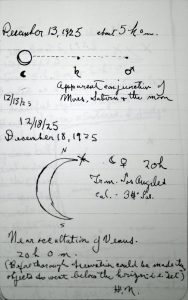
Figure 3. Among other things, Hugh noted an “apparent conjunction of Mars, Saturn and the moon” in this astronomy journal entry from
13 December 1925.4
At his pause, it was assumed he’d reached his limit, and the administrator stopped the test. The score showed an IQ of over 200 points. Hugh was nine years old and in the fourth grade, and at that point he was yanked out of school and the principal came to his house to tutor him personally. He studied most of his subjects that the school system offered but at an accelerated and advanced rate. Mr. Barr taught most of it, but additional teachers were brought in for languages. In academics, Hugh continued to excel, and he fostered a love of a subject not taught in day schools, for obvious reasons: astronomy. He made a map of the moon when he was thirteen years old. He received a telescope as a gift and kept journals with drawings of the stages of the moon and observations about the planets. He also famously painted over a street lamp that was bothering his stargazing with light pollution. And once he came to breakfast, looking particularly odd. Sloan, his older brother, recalled, “It took us a while before we realized what was different about [Page 321]him.” He’d cut off his eyelashes so he could see through his telescope better.
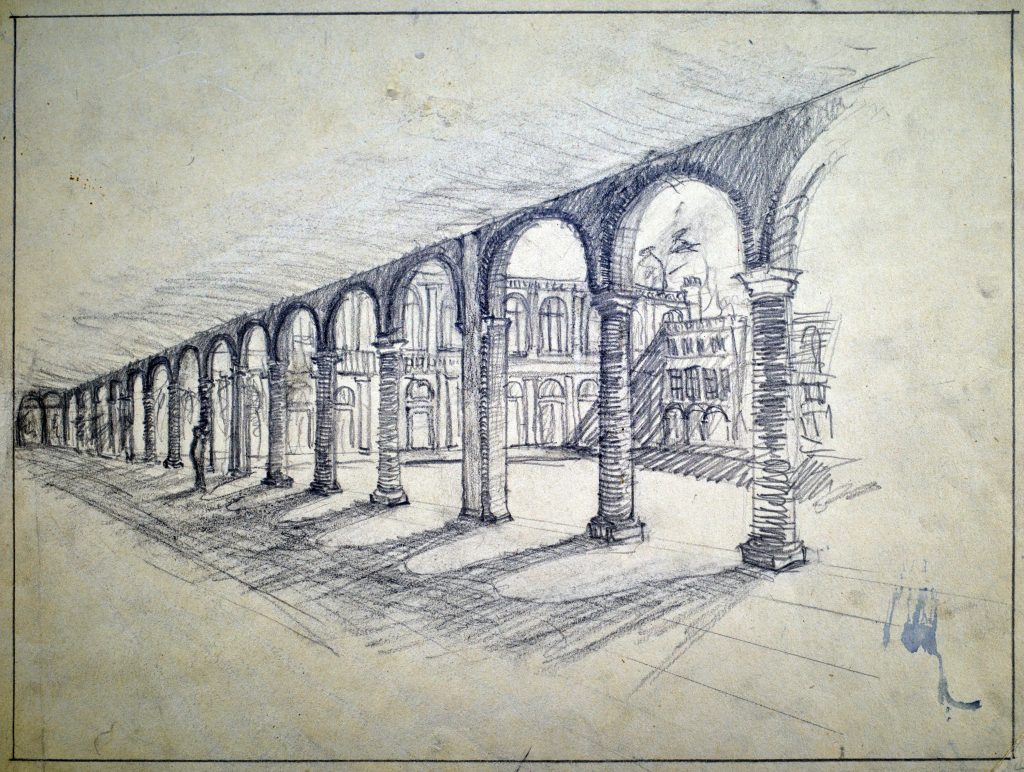
Figure 4. A perspective drawing from Hugh’s sketch book.5
Torn even at that young age by a fierce desire on one hand to know and learn everything he possibly could and, on the other hand, awareness of the dangers of academic snobbery and arrogance, familiarity with the cautionary tales in scripture about those who manipulate their knowledge and education for the sake of their own vanity, gain, or pride, Hugh both threw himself into school and yet continued to develop that famous detachment. He loved what he learned, but he was never very impressed with himself for knowing it. A letter to his grandfather from 1921 shows how little investment he placed in his ego. After saying that he stayed up until two in the morning, mostly drawing, he observed, “Drawing is like learning to play the violin; the more you know, the less you think you know. I am positive I know an awful lot.”
There is the tension in that turn of phrase. He’s aware of his shortcomings, and he is aware that he is not as aware of his shortcomings as he should be. There is a medieval trope or figure of rhetoric called occupatio, the inexpressibility claim in which a writer says he is incapable of a description and then proceeds to describe precisely why and how the indescribable cannot be described. Hugh, age eleven, is using a rhetorical flourish of false modesty to describe his own lack of talent. There is engagement with his own activity, and then there is that observing quality, [Page 322]that detachment as he watches himself, being both talented and yet not as skilled as he knows a person can be. His wry humor at his immaturity demonstrates his surprising and charming maturity.
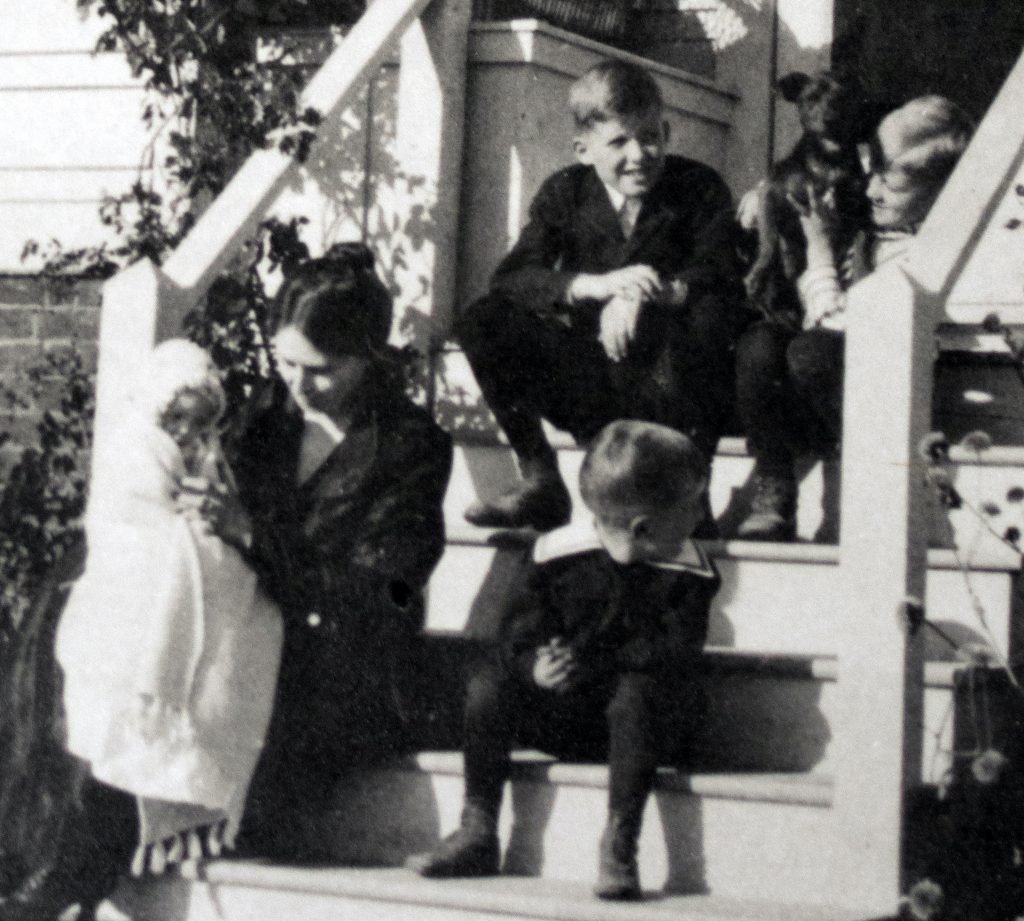
Figure 5. Sloanie Nibley with Philip and Richard in front;
Sloan and Hugh in back.6
In middle school, Hugh was skinny and scrappy and socially a klutz. In other words, he was in middle school. He’s the one with the dog on his lap—kind of hard to see which one he is there (fig. 5). His erudition did not, as we can imagine, win him points with the tough-kid crowds of Alta Loma School, nor did his naturally competitive drive to excel. “I was a show-off, I’ll say that, yes,” he says. An insufferable little know-it-all. Some of that, naturally, was insecurity about fitting in a new environment. But, as happens in most plucky schoolboy stories, things got better. Hugh found himself a larger, stronger, socially more suave best friend named Robert, a sort of bodyguard for the nerdy brainiac, which offered him some protection. And then he was also graduated to Los Angeles High School at thirteen, a year and a half early.
[Page 323]During this time, he experienced his sort of wake-up call to study ancient civilizations, languages, and peoples. It did not come as a result of study but as a spiritual experience among the books of his parents’ attic. As he contemplated a certain volume, a knowledge and a desire simply formed at its own will in him. “I knew quite clearly that these were real people. They had lives and loves. I knew they needed to be understood and we needed them to understand them, you see. So you see, I really had no choice in the matter.” I doubt he really wanted a choice in the matter. In high school, he also maintained his extracurricular hobbies, as well as academic subjects. He continued with astronomy and writing poetry. Music, as well, was something his mother wanted all of her children to pursue, at least to some degree. Hugh played the piano throughout his life, practicing and repeating the same errors in the same places as long as my childhood endured, and then some.
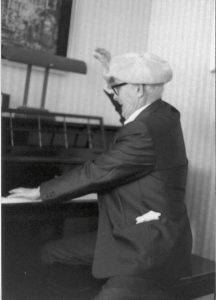
Figure 6. Hugh “thinking very hard” as he plays the piano.7
High school was much more fun for Hugh than middle school. For one thing, he attended a very tony, very elite high school in Los Angeles. And for another thing, his best friend was a certain John Cage, later to become known for such musical experiments as 4’33”, which contains no notes, and sonatas and interludes that require various objects to be placed on the piano strings to produce weird noises when the piece is [Page 324]played. This wickedly disrupted and subversive intellectual was definitely Hugh’s kind of best friend. Unfortunately and maddeningly lost to my memory is a story about a particularly brilliant practical joke the two of them played on one of their teachers. I think it involved goats. If any one of you has heard it, please repeat it back to me.
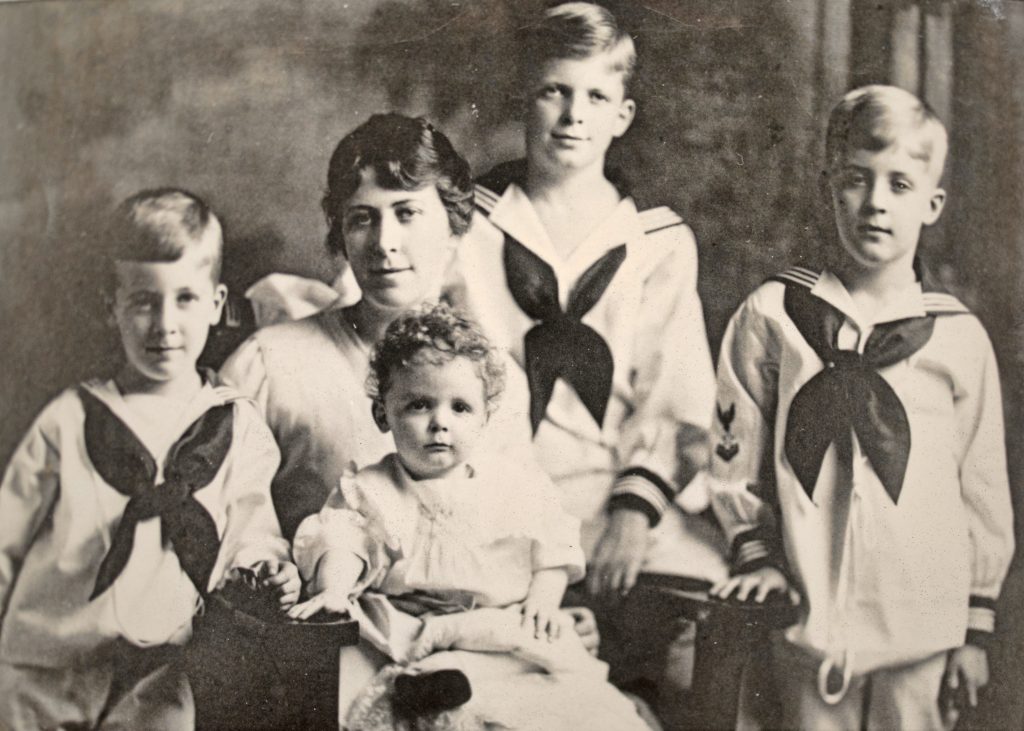
Figure 7. Sloanie Nibley with Richard, Philip, Sloan, and Hugh, ca. 1918.8
Hugh’s favorite class was English because the teacher had the students memorize long passages from famous literature, which, once committed to memory, Hugh never really forgot and always relished. If one of us kids quoted a line from Shakespeare, it was a fair guess he could give us the next line or twenty, and then correct the mistake we made in the first. He loved things that were beyond the grasp of many other high school–age students. But this striving and competing with himself, holding himself to a higher standard than other children, had an ugly side as well. Spoiled by his mother’s insistence that Hugh be set apart from the other children, that he was somehow special, Hugh was unwittingly blinded to some forms of plain human decency.
My uncle Richard was the son just younger than Hugh. Assigned quite an unfair share of the household chores so that Hugh’s time could be freed up for higher things in the life of the mind, Richard once got very fed up with his older brother. He somehow convinced Hugh to come and help him dry the dishes that Richard had just washed. Hugh ambled [Page 325]over to the sink, picked up one cup and dried it and put it on the shelf, picked up another cup, dried it off, and put it on the shelf, picked up a third, looked at Richard and said, “But anyone can do this.” And he put it down and walked away. I don’t know how that story ended, but I harbor a guilty hope that there was some righteous fraternal violence involved.
Hugh was also in the ROTC in high school. This surprised me when I learned it, since he was such an adamant pacifist when I knew him. His enrollment in the ROTC was his mother’s idea. She had five sons, and the family knew which way the wind was blowing between the wars politically. The Nibley boys would be safer as officers than if they were drafted. So, it was officer training for all of them. What did not surprise me at all was to learn my daddy was typically Nibley about it, receiving the highest ranks in most areas, always the overachiever, and yet destroying the decorum of the final graded ceremonial drill by turning it into a spoof. His brother Sloan remembered it as sort of an Abbott and Costello slapstick thing. He got in trouble for that. Hugh despised pomp for pomp’s sake, and he saw far too much of it in the military. He knew that human dignity was an oxymoron and that nothing could be so truly dignified as a man confident enough to laugh at himself genuinely and nothing so pathetically laughable as imposed ingenuine dignity.
Better than school though, high school–aged Hugh loved his summers. He spent his summers immersed in the wilderness, as far into the wilderness as he possibly could. At fifteen, he worked in a California lumber mill that his father and grandfather owned and ran. I don’t know for sure, but I believe this was the time when his patient and willful detachment became a honed and practiced necessity for him. The reason I believe this is that I know how much he loves the wilderness, and I know that it pained him that his beloved grandfather was responsible for so much of its destruction.
On being asked to return home from the mill, Hugh wrote back to his mother:
What’s all this business of coming home. Let me live in Paradise while it lasts. I climbed Jackson’s Peak Sunday, and when I looked around, I saw not the great gray-green expanse of forest I had expected, but hundreds of miles of rocks and stubble broken here and there by well-thinned plains of dry pines. This would have been most disappointing had it not been for one great patch of woods. What a heaven it was to look down on those blue tops of those great, cool firs and know that there in her last stronghold lives Nature and all her [Page 326]great family. For to this citadel have flocked all the hosts of the forest. Here in this cold, green temple, oozing and dripping with a licentious profusity of life, I felt as if I were a trillion years old. Nothing seemed strange or unusual. Badgers, coons, deer, skunk, porcupines, snakes and all paid me a passing glance, and went on their business.
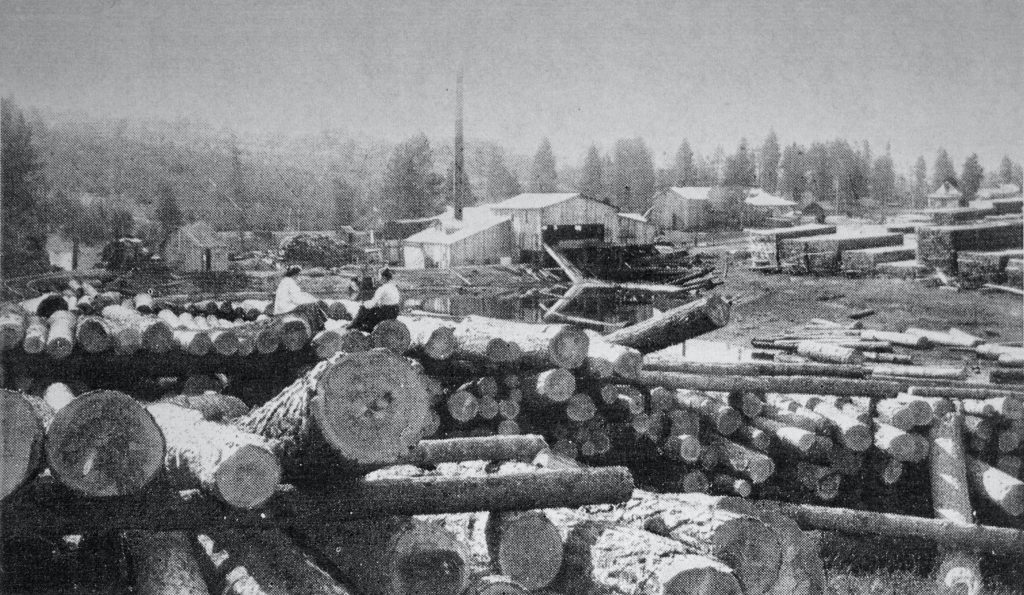
Figure 8. Nibley Mills near La Grande, Oregon.9
This is the only unlogged tract within a half a hundred miles of here—five hundred million feet of it—and owned, “the devil damn [it] black” by the Nibley-Stoddard Lumber Co. Soon it will be leveled to a desert—the streams will dry up and leave it to the sun, the sage brush, the snakes and the lizards.10
His summer job that year consisted of what they called feeding the hog, the steam engine–powered sawmill that ran nonstop, day and night, with the rejected wood of the majestic redwoods. Grandpa took these hundreds-and-hundreds-of-years-old trees, these redwoods, and he’d square them up and take only the hearts, only the center wood of the trunks for railroad ties. The rest was hauled off to be burned for the saws. That was something, that destruction there. Hugh found his grandfather’s love of entitlement to this nature to be appalling, and yet he loved his grandfather dearly. To maintain that love, he had to detach, to simply observe the damage Grandpa did to the earth and to Hugh’s own heart.
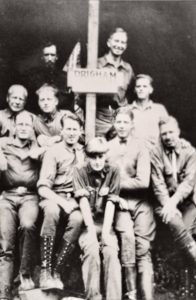
Figure 9. Hugh (bottom center) at Aspen Grove camp, summer 1927.11
Not yet what it is now in terms of tourists and amenities, but also not yet legally protected, Crater Lake was wild. Hugh went on a weeks-long camping trip to a place virtually untouched by humans. His encounters with wildlife are verifiable. The cougar was likely one that had recently been sated on local livestock. So, it was not after him for food; forest rangers warned him about that. The cougar and my stupid sixteen-year-old future father shared a soulful moment staring at each other before the cougar finally went on its way. The rain in the forest of Oregon being legendary, Hugh spent quite a few nights in caves. In one, he encountered the first wolf, the one he chased off with pyrotechnics. The other wolf was a lot scarier. He was asleep in his bedroll and felt something tugging on his blanket. He woke up to see a wolf trying to make off with it, and he threw her a piece of bread. Rather than eating it, the wolf took it and turned and disappeared up the rise nearby, and then she came back.
[Page 328]At this, Hugh realized that she must be a mother feeding cubs, and he was a source of food. He gave her another piece of bread and planned his getaway. When she turned around, Hugh stood up and instantly the wolf, probably afraid he was a threat to the babies, sank her teeth into his thigh. The scar was visible when he wore his swim trunks. She apparently considered one bite to be enough of a warning because she didn’t follow up on the attack, and he didn’t stay around to see if she would. His wound eventually healed without infection, but also without the stitches it probably needed. And yet, that incident was still not the one to put him in most danger on that trip. That he did himself. Following the nature writers, he tried to live on the huckleberries that grew wild, along with a bag of raisins and raw wheat, and he got very sick. Also in another cave, rats ate his shoes. So, he walked the last forty miles home barefoot.
I was asked to speak about early education. I am pretty sure the summer of 1926 was very educational for him. By the next summer though, Hugh would be Elder Nibley, serving sometimes without benefit of companion in what was then called the Swiss-German Mission. Young as he was, he was called, as the Church had not yet set any absolute age limits on missionaries. Hugh’s older brother Sloan was preparing to go. And so, his parents and grandfather, who was by then a General Authority, arranged for Hugh to go out about the same time.
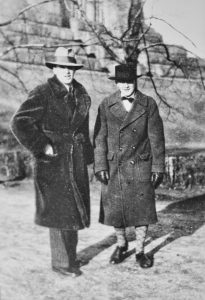
Figure 10. Hugh (right) and his brother Sloan as missionaries, August 1929.12
Hugh’s mission involved another mix of formal training and unofficial education. A slight seventeen-year-old, he was nevertheless feisty, fiery, and convinced. Missionary training was different in the twenties. Hugh stayed at the training house in Salt Lake City for two weeks, mostly training in scripture study and gospel preparedness. And [Page 329]then, when the missionaries arrived at their destination, the language training began in earnest and by immersion. Hugh took to the language immediately, and his letters home indicate that his already opened eyes were seeing more than he could have anywhere else. He was seeing the beginnings of World War II. Most missionaries under the pressure of doing serious work, sometimes for the first time in their lives with that kind of intensity, will cut loose and goof off and then feel very guilty about having let off steam, perhaps temporarily losing the spirit of teaching.
But most missionaries actually goof off when they goof off. Hugh’s mission guilt line in his journal asks the terrible question, “Can one hour a day of Greek be playing the devil with my mission?” His naughty indulgence was in learning the original language of the New Testament. Germany was, as Hugh was acutely aware, the center of so much of the Western world’s ideals of civilization that it would have been difficult for a person such as he was to be there without enhancing his education. But alas, the formal study of ancient Greek must wait. And Hugh focused his energies on the spiritual condition of the German people, which he found alarming.
“There is a settled indifference,” Hugh wrote home. “The people of Germany were setting their hearts, not on something bad, but simply against anything good, anything that could help or change them.” This early in his life, he was not yet as aware as he would become of the specifics of the encroaching war, but he was very clear about the inevitability of it. In the blessing setting Hugh apart for his missionary service, Elder Melvin J. Ballard instructed him specifically, “Tell these people that unless they repent, they will be destroyed by fire from heaven.” This was a message several Germans found annoying.
In one town, Hugh was actually chased from a butcher shop by a woman wielding a meat cleaver. “Don’t you tell me about fire from heaven.” Within a dozen years, that town was destroyed in an allied firebombing raid. Hugh saw what remained of the butcher shop. It was a doorway. Yet at sixteen, Hugh learned about survival in the natural world. At seventeen, his missionary education was about survival among humans. This was not the kind of street smarts knowledge or sociological observation, but again, a return to that detachment, a keen spiritual insight into the workings of the souls, both of the individual people and of collectives that can become tribal, defensive, and dangerous.
Germany wasn’t a terrible state. More than one political thinker recognized that the Treaty of Versailles, which ostensibly ended World War I, was seen as a slap in the face to the German people and the [Page 330]German nation. While Hugh was on his mission, Hitler’s rise was not yet as progressed or as alarming as it would soon become. But the economic depression and the morale-crushing losses of the Great War were still stinging, setting the stage for a dictator and frustrating proselyting attempts of a young Elder Nibley. There was no question that Germany was suffering.
At one point, while Hugh was on his mission, a single American dollar could exchange for around one billion Deutsche Marks, and Hugh’s family was sending him $50 a month. He did not use it. One story that Boyd could not get Hugh to verify outright is still good enough that I have to tell you anyway. Hugh denied it outright the first time Boyd asked about it, but on further reflection, he said, “Well, I guess something like that probably happened.”
The story goes that the mission president wanted to take up a collection for a missionary, a missionary whose clothes were getting old and ratty, an anonymous collection for a new suit. Hugh was eager to contribute, figuring that since the poor fellow was out a suit, his shoes must be worn out as well. And so, he donated enough extra to buy the elder some new shoes. Only to find out the missionary in need was Elder Nibley.
The mission being, for so many Latter-day Saints, the singular rite of passage into adulthood, my impeccably thorough chronicling of Hugh’s early education comes to a halt here. He would come to return home, finish graduate degrees, and begin a professorial career in California, and join the US Army to fight against the people whom he had tried so hard to warn and to bring into the fold of the gospel. But I did promise at one point or threaten to convey how little the details and even the content of his education mattered in shaping him into what he was.
Part of Hugh’s uniqueness lay as much in his inabilities as in his abilities, as much in what he refused to learn as what he refused to allow to remain unexamined. In my last few minutes then, in no particular order and obviously varying in degree of seriousness, I numerate some of the things that everybody knows that, in fact, Hugh did not know, as well as some things that everybody should know but that he actually understood. So, these are some things that Hugh Nibley didn’t know.
There is no such thing as a free lunch! Could not get that into his head. Academic degrees make you smart. He didn’t know that. He didn’t know when it is entirely appropriate to interfere in a teenager’s life. And he didn’t know when it is appropriate to allow someone else to interfere in yours. One of his best friends came into his life because of that. It was [Page 331]a young man, not much older than me at the time, when I was very first married, who found out that he was dying of HIV/AIDS, and he decided that Hugh Nibley was somebody he needed to know. And Hugh Nibley was not necessarily approachable for a lot of people, but Jeff decided that it was time to interfere with Hugh Nibley’s life, and they became pretty good friends. But it took Jeff to teach him that.
He didn’t know where he left the car. Hardly ever. And he didn’t know the mysterious physics of strawberry jam. Everything was always sticky somehow, whenever he got around it. And he did not know that there is no existence but this life. That’s something he didn’t believe at all.
Here’s some things he did know. Generosity is simply the natural order of things. Nobody owns anything, so nobody can share. You just are. His generosity was so deep that it wasn’t even a blip on the radar. He did know that ultimately love and affection are not only more important than brains and drive, but they are the only important things. This was one he learned when he was ninety-four. He did know the Book of Mormon is the word of God. And likewise that Joseph Smith was a prophet. He also knew that institutions are as good or as bad as their members, that goodness and evil can be found all over. He knew which one was Beavis and which one was Butt-Head. I don’t know that. And he knew that repentance is the key to atonement, love, light, and knowledge.
The content bits of Hugh’s education are legion. There was a synchronicity of personality and talent in one person colliding with the resources, timing, historical moment, eagerness, and mission that did undoubtedly influence him. His brain and his mind were ready and able in the right place and in the right time. But that still wasn’t Hugh Nibley. Those were necessary though insufficient causes of Hugh Nibley. You might say that there was more to the mantic than the sophic of my father, and that would be right too, that would be getting warmer. Athletes call it heart when somebody puts more effort into a task than seems humanly possible. Lovers call it heart when they give their full devotion to each other. The root of the word believe is related to the word belove. Originally, it was not concepts one believed or believed in, but people were deities or saviors. When you believed, it was that you loved. Hugh believed. Ultimately though, his mind was uniquely keen, sharp, jam-packed, elegantly equipped, and indisputably well-trained. It was Hugh Nibley’s heart that made the difference. And it was a very good heart.



Go here to see the 3 thoughts on ““Nibley’s Early Education”” or to comment on it.